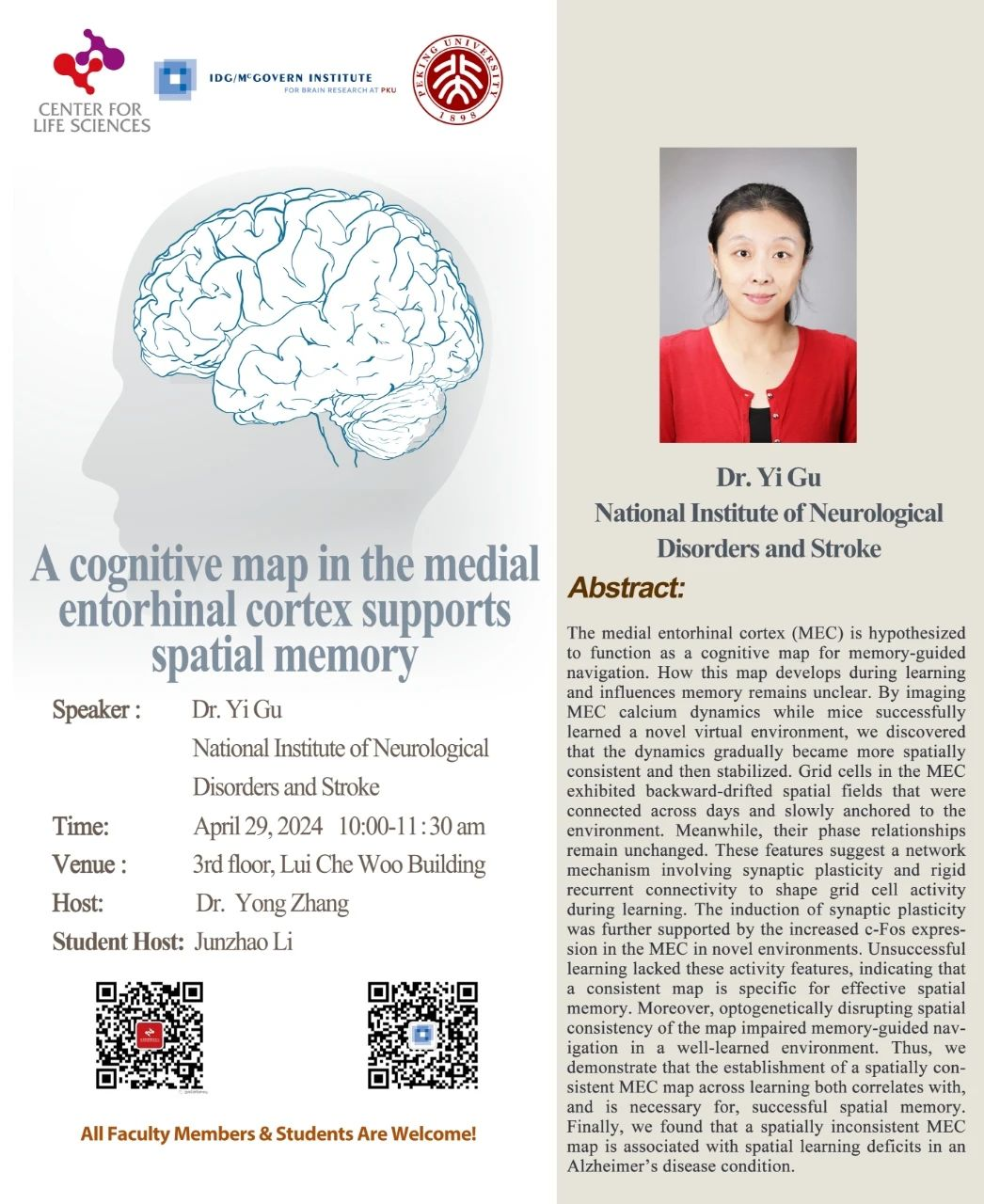
Speaker: Dr. Yi Gu, National Institute of Neurological Disorders and Stroke
Time: 10:00-11:30 a.m., April 29, 2024, GMT+8
Venue: 3rd floor, Lui Che Woo Building, PKU
Abstract:
The medial entorhinal cortex (MEC) is hypothesized to function as a cognitive map for memory-guided navigation. How this map develops during learning and influences memory remains unclear. By imaging MEC calcium dynamics while mice successfully learned a novel virtual environment, we discovered that the dynamics gradually became more spatially consistent and then stabilized. Grid cells in the MEC exhibited backward-drifted spatial fields that were connected across days and slowly anchored to the environment. Meanwhile, their phase relationships remain unchanged. These features suggest a network mechanism involving synaptic plasticity and rigid recurrent connectivity to shape grid cell activity during learning. The induction of synaptic plasticity was further supported by the increased c-Fos expression in the MEC in novel environments. Unsuccessful learning lacked these activity features, indicating that a consistent map is specific for effective spatial memory. Moreover, optogenetically disrupting spatial consistency of the map impaired memory-guided navigation in a well-learned environment. Thus, we demonstrate that the establishment of a spatially consistent MEC map across learning both correlates with, and is necessary for, successful spatial memory. Finally, we found that a spatially inconsistent MEC map is associated with spatial learning deficits in an Alzheimer’s disease condition.
Source: McGovern Institute for Brain Research at PKU
